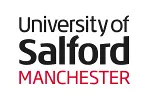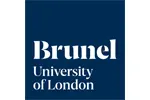This course is designed to provide you with a comprehensive knowledge of the architectural design process, and opportunity to acquire the necessary skills required to become a professional architectural technologist.
Focusing on these three core areas; design, technology and management of building projects. By the time you graduate you will be able to ensure optimal functionality of structures and buildings, positioning you as a valuable candidate for potential employers.
This course is also offered with a foundation year.
Why study BSc (Hons) Architectural Design and Technology at BNU?
Taught by the Industry
The BSc (Hons) Architectural Design and Technology degree is led by a dedicated and experienced course team. Benefit from their industry knowledge and the industry links they bring to the course. Many of our guest lecturers are industry-experts and alongside your lecturers, they’ll nurture your learning and professional development.
As well as this we seek provide you with industry brief opportunities, where you’ll apply your knowledge, skills and understanding into real-world contexts. This is gives you the opportunity to network with professionals and get a feel for what a career in the industry is really like.
Holistic Learning
This architectural design and technology course focuses on practical, in-demand skills. Your time spent experiencing studio practices will mirror the professional practices so not only can you ensure buildings function as they are intended to, but you also understand how business within the sector functions.
At all levels of the course, employability skills have been built into the programme to prepare learners to gain work experience and acquire skills to secure employment on graduating. These activities will include practitioner visits, CV preparation, mock interviews, and production of a personal portfolio.
Inspiring Facilities
At BNU we have a range of state-of-the-art-facilities for you to get hands-on with whilst studying your architectural design degree. You’ll undertake and develop computer-aided design (CAD), data analysis and environmental modelling skills in our dedicated studios - all essential skills for Architectural Technologists to acquire and apply to project work.
You will learn AutoCAD, Revit, 3D Studio Max, Rhino and Photoshop through structured lessons in IT/CAD suites and studios.
For independent study we offer a four-storey library filled with all the articles, books, research papers, computers and printers.
Small Cohort
You’ll study in a close-knit tutor group where everyone’s input is recognised and valued. Not only will you make friends for life, you’ll also make important connections that will last through your career, and you’ll form a network, just like you’d find in the working-world.
Location
Our High Wycombe Campus is only a short train ride away from London, meaning you are only a stones-throw away from the hustle and bustle, as well as beautiful architecture – both modern and traditional. You are also only round the corner from Oxford and Reading.
What will I study?
Whilst delving into the three core themes; design, technology and management of building projects, you’ll gain skills in design, using both manual and digital methods, as well as emerging technologies used in the construction of buildings and structures.
Central to your learning will be the time you will spend in the design studio using industry-standard design suites to develop and apply your skills on building design projects. You will study a variety of subjects to become proficient in construction technology, materials, legislation and management. You’ll learn how to negotiate and manage the design process, whilst also understanding how to implement technical knowledge in developing practical and creative solutions, which meet existing working practices and legislation.
You will develop the valuable ability to plan and design buildings embracing social, technological, environmental, ethical and cultural perspectives, meeting the client’s requirements and expectations.
This course will prepare you to work as part of a project team, administering procurement strategies and contract procedures, providing support and co-ordination to turn the design into reality.
On completion of the course, you will know how to design and detail many kinds of buildings and communicate your designs effectively using the latest industry-standard software. You will learn to specify materials, components and assemblies to satisfy agreed briefs and standards in terms of time, cost and quality.
In addition to subject knowledge, you will develop key interpersonal and transferable skills appropriate to a career in Architectural Design and Technology.
This course is also offered as a four-year programme, including an initial Foundation Year. The Foundation Year will allow you to develop your academic study skills and build confidence in your abilities, identifying your own strengths and development needs for progression onto an undergraduate programme.
How will I be taught and assessed?
The course will use learning and teaching activities such as lectures, seminars, tutorials, demonstrations, and project supervision. Virtual learning environment (VLE) will be used throughout the teaching of modules. Project briefs, lecture notes, and supporting information such as study skills guides are made available through the VLE and you will be encouraged to research information using directed activities.
We also aim to provide industry brief opportunities for you to apply your knowledge, skills and understanding into real-world contexts. The theoretical underpinning of practice encourages the development of critical perspectives in relation to the language of design.
A variety of assessment vehicles are used as appropriate to each module. The forms of assessment have been chosen to motivate learners to achieve and to create positive learning opportunities. The assessments are mainly coursework, which include:
- Written assignments
- Report
- Portfolio and digital models
- In-class assignments
- Computer-based test
- Set Presentations (for example, poster and oral)
- Laboratory exercises
- Proposal
- Dissertation






